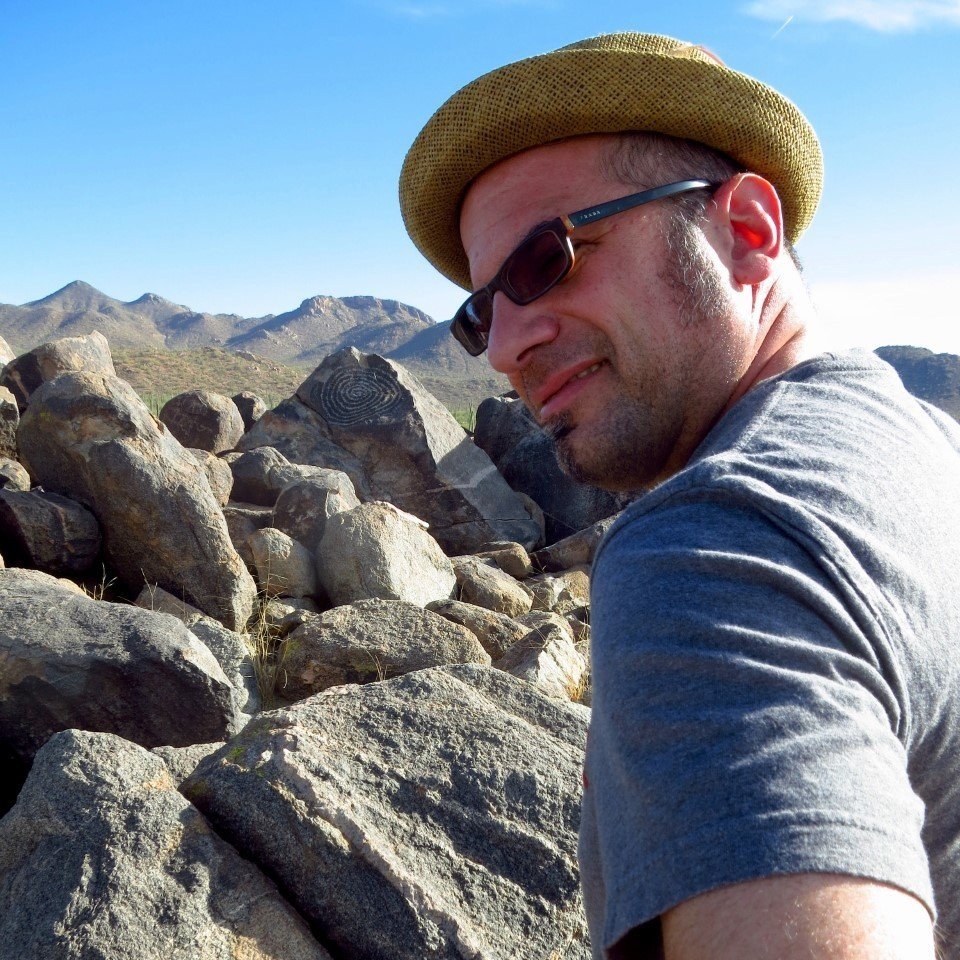Duck Feeder
Philip Brunetti
That one likes to feed the ducks. She creeps down the wooden back stairway of her house and crouches near the edge of the dock. She carries a cellophane bag of old bread bits. She opens the bag and tosses bread into the channel. The ducks come swimming up with bobbing heads and excited quacking — semi-excited quacking. They skim the surface and dip their bills for sinking scraps and morsels, eagerly gobbling it all up.
After she finishes feeding the ducks, the girl stands up on the dock and glances at me. She sees that I’m about twenty feet away and behind glass. I'm standing in the window of my den, looking out at the small dock and channel, and the girl is looking in at me. She seems ready to bounce back up the wooden stairs barefoot but instead she stands still and then starts talking:
“I’m the girl that likes to feed the ducks,” she says. “I don’t do it all the time. I do it once or twice a week and only when I have bread bits or other usable duck food. I don’t buy food specifically for the ducks. I use leftover food that’s available and not wasteful. Anyway I’m a girl. I’m thirteen years old. I’m standing on this dock wearing a green T-shirt and jeans shorts. I’m barefoot. It’s almost too cold to be barefoot. Next week it might be too cold.”
She pauses. She knows I haven’t heard all of this or at least not completely clearly. It’s true that the bottom of the window is pushed open and her voice does come into that crack of space. I hear it — I do hear it. I don’t know what else to do but hear it…
“That one likes to feed the ducks,” I say. “That’s what I thought about you when I saw you. When I caught sight of you prancing down your stairs and getting ready to feed the ducks. That’s what I’d say to myself.”
The girl nods knowingly. She appears to nod knowingly. In truth there may be nothing knowing about it — but at least it’s a nod. Two or three nods even, but the last one was ever so slightly less nod-like than the proceeding one. And the second one less than the first.
“Your nods diminish,” I say.
“Nods diminish eventually,” she says.
“I think you’re very far way,” I say. “I think you’re so much farther than twenty feet.”
“It might be twenty-five feet,” she says.
“Maybe,” I say. “But it’s like you’re on some other coast completely. Maybe it’s an old black-and-white movie. Maybe you’re on the same beach with that baffling sea creature. Such an odd, amorphous creature…”
“I know that beach,” she says. “My uncle’s name is Federico.”
“Does he have a flat nose?” I ask.
“Not yet,” she says. “That comes later.”
Ah, later.
It wouldn’t be too much later. It might be months later, or years later, or just a few pages later. I can’t remember. I can’t remember everything — I’m an old man. But this one, this one likes to feed the ducks. I guess she likes it. I’m trying to understand everything else about her without looking at her and without thinking about her. In fact I never think about her except when she appears on her backstairs and descends with a small bag of food bits. Broken-up pieces of bread or crushed crackers. Popcorn once. This hasn’t been going on too long. Maybe two or three months. She comes down the stairway and feeds the ducks. I drink a cup of tea at the window. It’s just where I stand — where I live. She’s where she lives. The ducks are there too. Swimming in the inlet, snacking. The ducks have tiny brains but beautiful iridescent feathers, mainly in the neck area. But the males only, I think. Or maybe it’s the females. Whichever, the ducks have empty bellies. Maybe they’re not completely empty. Maybe there are worms and insects in their digestive tracts. The girl and I don’t think about this or talk about it. But then I wonder about it sometimes — like right now. And I wonder if she wonders about it too…
Anyway, the ducks took it back. They took it back to something that wasn’t me and wasn’t the girl and was just ducks swimming in the channel eating bread. There was nothing else to figure except that everything had fallen like a deadweight. Still, no one would have noticed as I sipped my tea from a graying blue teacup. But maybe that was the clue — the thing to notice.
The girl bounded back up the stairs. She opened and closed the backdoor and was gone. The ducks were done feeding and had swum off. Eventually they’d grow hungry again and come quacking back around. I might go feed them. I might do something too. But it could cause a ruckus. A kind of awkward rivalry. But that was all I wanted anyway. Somebody’d told me that was all I really wanted.



